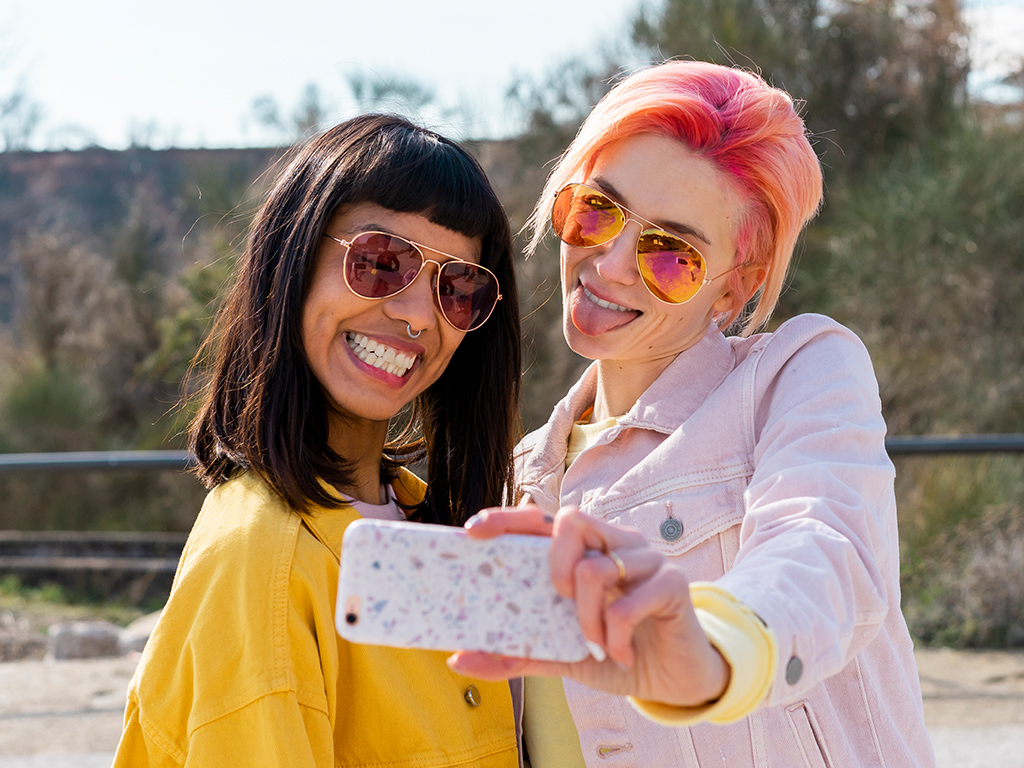When Lisa’s close friend ignored her text messages for a week recently, she knew something was up.

The 26-year-old, who asked Global News to change her name, said she couldn’t figure out why her friend was upset. After days of receiving the silent treatment, Lisa learned her pal was angry over a photo she had posted on Instagram.
“I shared a photo of us at a party that she felt she looked bad in,” Lisa explained.
READ MORE: From bridesmaid to stranger — How weddings can destroy friendships
Lisa immediately deleted the offending image from social media, but the lingering effects remained: she was hurt that her friend ignored her for days instead of simply asking her to take down the picture.
“It felt unnecessary because I would have immediately removed the photo,” she said. “To be honest, I am still a little upset by how she handled it.”
How to talk about “bad” photos
According to Dr. Natasha Sharma, a Toronto-based relationship expert and creator of The Kindness Journal, if you find yourself in a similar situation, directly asking someone to take down a photo is the best route to take. Addressing the issue right away prevents it from turning into something more.
WATCH: Instagram experiments with hiding “like” count on posts

Dr. Simon Sherry, a professor of psychology and neuroscience at Dalhousie University in Halifax, advises people not to make a fuss over unflattering photos. Sherry, who also works as a registered psychologist, says people should try to accept photos of themselves, good and bad.
“Insisting on a flawless public presentation of you is unrealistic — and likely to generate dissatisfaction with your body,” he said.

Get daily National news
If you’re someone who doesn’t like their photo being shared online at all, Sharma added, you should make that known to your family and friends when pictures are taken. That way, it’s less likely pictures of you will be posted without your consent.
READ MORE: ‘Roughest period of my life’ — The emotional trauma of calling off a wedding
“Most friends who are close or have known one another for a while have a social awareness and understanding of what goes and what doesn’t among their group members,” Sharma said. “This usually includes posting pictures on the internet.”
When photos can be a source of contention
A lack of social awareness is what drove a wedge between Andrea, who asked her name be changed, and a longtime friend. Andrea, 28, says her friend would “always post horrific photos” of her and their other friends on Instagram and Facebook.
What’s more, Andrea explained, is that her friend would never delete “bad” photos when she asked. She would maintain that everyone looked fine and brush aside Andrea’s issue with the picture.
The behaviour became so unbearable that Andrea stopped agreeing to take photos with her friend unless the pictures were taken on her own phone. That way, Andrea had the power to delete unflattering photos of herself and only share images with which she felt comfortable.
Why photos can cause distress
Sherry says social comparison is a key factor in why some people get upset over unflattering photos. If you’re an active social media user, seeing “especially beautiful people” on Instagram, for example, can create body image dissatisfaction, he said.
READ MORE: Family therapy can make you feel ‘validated.’ Here’s what to expect
Because so much of our lives are now posted on the internet, Sharma says people care greatly about how they are “socially perceived.” If you want people to see an ideal version of yourself, a bad photo can affect that.
“The internet… is a way to perfectly craft your desired image — even if it is false,” she said. “Everybody — not just celebrities and companies who are online in any major way — is now a ‘brand,’ and for many, they want that brand to be perfect.”
Plus, most people just don’t like seeing bad photos of themselves. It’s human nature.
“It made me feel embarrassed and I didn’t want anyone to think I look like that,” Andrea said of her friend’s unflattering photos.
Laura.Hensley@globalnews.ca








Comments